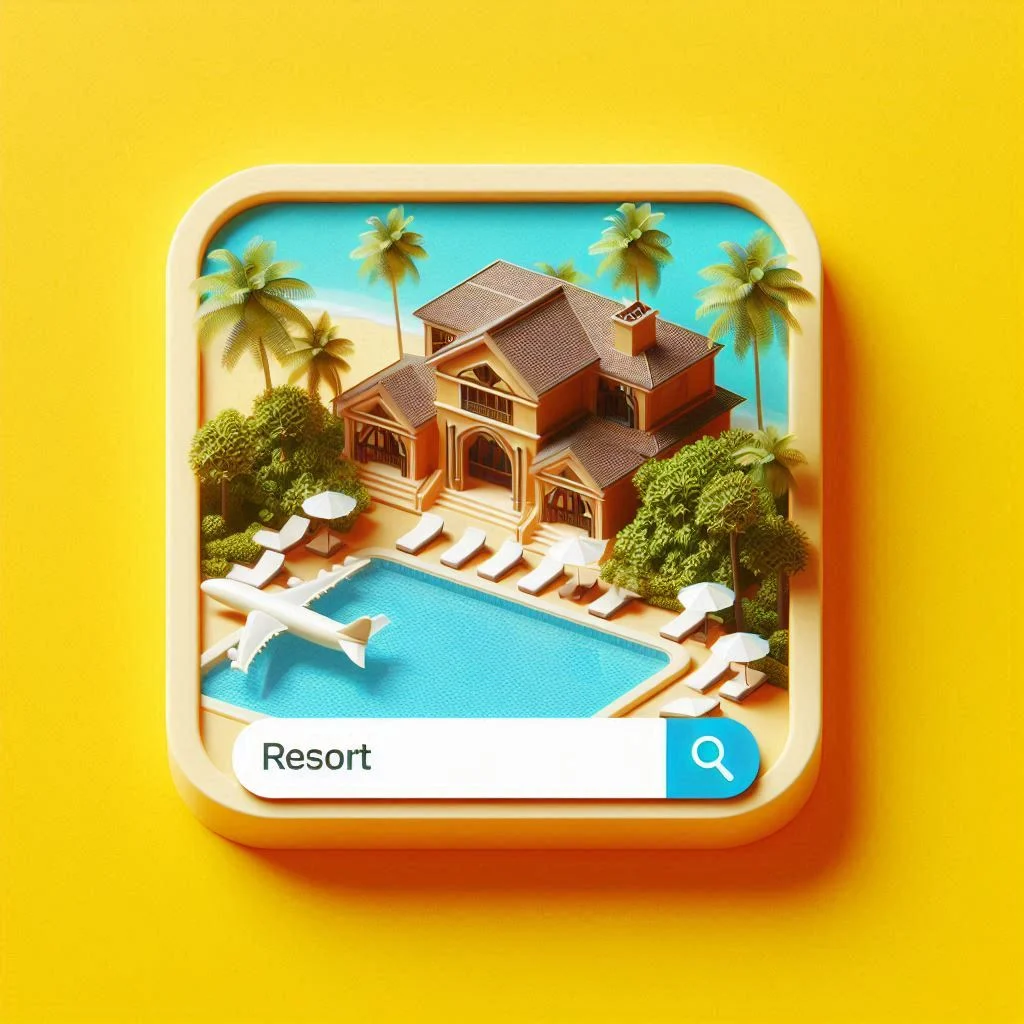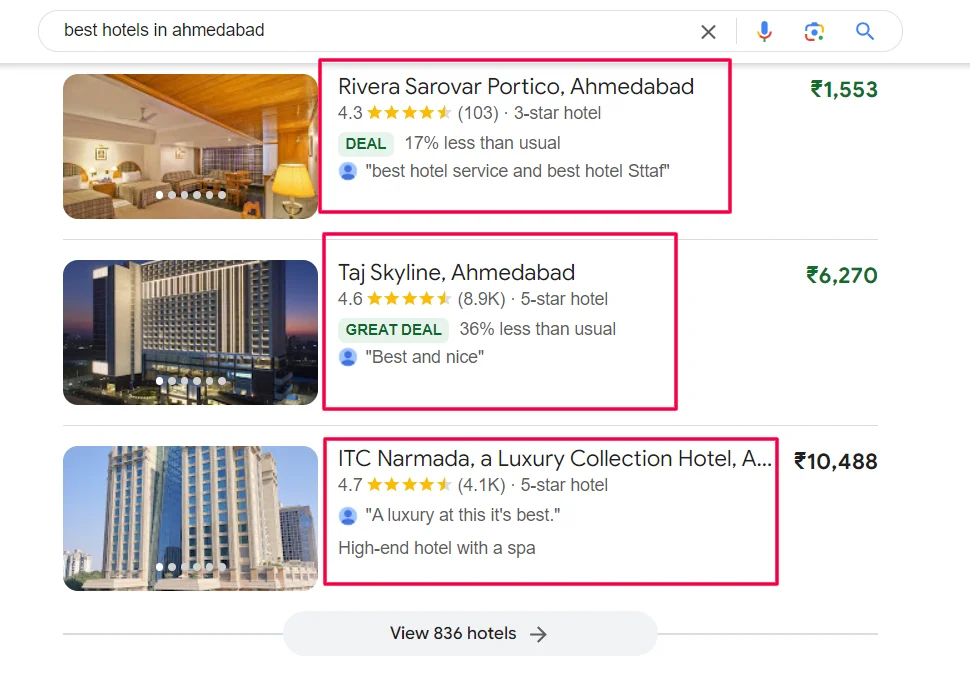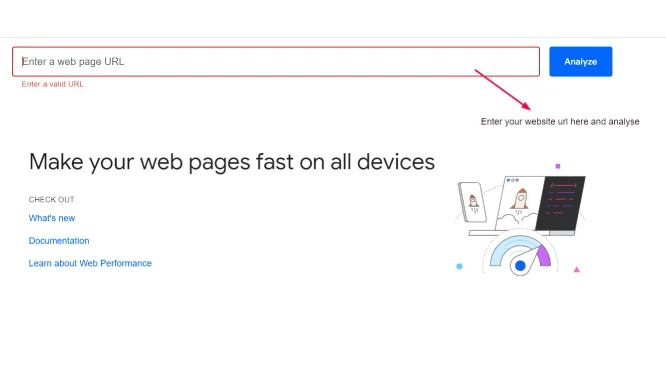
SEO is all about delivering results, but let’s be real—it can get pretty challenging at times. However, with patience, the right strategy and consistent effort, you can turn those challenges into opportunities for growth.
In this blog, we’ll take a deep dive into SEO for hospitality brands, covering everything from what is hospitality brands to why is it important and creating a strategy for the same.
Let’s get started!
Table of contents
- What is Hospitality SEO?
- Why is Hospitality SEO Important?
- Creating an SEO Strategy for Hospitality Brands
- Conclusion
- Frequently Asked Questions
What is Hospitality SEO?
Let’s start with the basics. Hospitality SEO is all about optimising online content for hotels, restaurants, travel agencies and other businesses within the hospitality industry. The goal is to make these brands more visible on search engines like Google, especially when potential customers are looking for places to stay, eat or explore.
Think of it this way—If someone searches for “best hotels in Ahmedabad” or “top Gujarati restaurants,” hospitality SEO ensures that your brand appears at the top of the search results.

Why is Hospitality SEO Important?
If you have observed the search behaviour of people around you, you will know that people always tend to search on Google if they were to look for a restaurant or a resort. And they are usually younger generations.
And if they are searching for it that means we can capitalise on it. It’s that simple!
Moreover, here’s why hospitality SEO is important.
- Increased Visibility: With countless options available, customers often turn to search engines to find what they need. Effective SEO helps your brand stand out.
- Targeted Traffic: SEO allows you to attract visitors who are actively searching for the services you provide. This means the traffic you get is more likely to convert into bookings or reservations.
- Cost-Effective Marketing: Compared to traditional advertising methods, SEO offers a higher return on investment (ROI). Once your site ranks well, you can continue to attract organic traffic without having to pay for every click.
- Improved User Experience: Good SEO practices also improve your website’s usability, making it easier for customers to navigate and find what they’re looking for. This can lead to longer site visits and higher conversion rates.
- Builds Trust and Credibility: Websites that rank higher are often perceived as more trustworthy. By optimising your site, you enhance your brand’s reputation and credibility in the market.
That’s why these brands need a hospitality digital marketing agency to attract potential guests.
Creating an SEO Strategy for Hospitality Brands
Developing an effective SEO strategy for hospitality brands requires a structured and detailed approach. Let’s break it down step by step:
1. Find the Right Keywords that Speak to Your Audience
Instead of just using generic words like “hotels” or “restaurants,” focus on specific keywords that match what your potential guests are searching for. Think about who your customers are and what they’d likely search for.
For instance, someone planning a wedding in Gujarat might search for “luxury wedding venues in Ahmedabad,” while a business traveller might look for “business hotels near Ahmedabad airport.”
You can use free tools like Google Keyword Planner or Ubersuggest to find these kinds of phrases, but always put yourself in your guest’s shoes and think about what they might be typing into Google.
Once you have your keywords, ask the writing team to use them naturally across your site. Include them in your page titles, headings, image descriptions and blog posts, but make sure it sounds natural—avoid keyword stuffing. This will help search engines understand your content better, while also making it user-friendly.
2. Make Your Website User-Friendly and Easy to Navigate
Your website is often the first impression a potential guest has of your hospitality brand and if it’s not user-friendly, they might leave before they even get to know what you offer. For a hospitality website, simplicity and ease of use are key.
Your website needs to be mobile-friendly, as a large percentage of users will be browsing from their phones. Make sure the booking process is smooth and easy to find and include clear calls to action (CTAs), like “Book Now” or “Check Availability.” Ensure that your contact information, location and services are easy to spot. Use high-quality images to showcase your rooms, amenities and facilities and provide detailed descriptions to help guests feel confident in choosing your hotel or restaurant.
If you’re running a chain of hotels or restaurants, create individual pages for each location, optimised with location-specific keywords. This will improve local SEO and help users find exactly what they’re looking for based on their needs and location.
For example, create separate pages for “Luxury hotels in Gandhinagar” and “Best restaurants in Ahmedabad.”
3. Optimise On-Page SEO to Boost Rankings
On-page SEO refers to everything you can do on your website itself to improve your rankings. Here’s how you can do it effectively for hospitality brands:
- Optimise your meta titles and descriptions: These are the short snippets that show up on Google when someone searches for your brand. Make sure your meta titles and descriptions are clear, include your main keyword and are appealing to potential visitors. For example, instead of “Best hotel in Ahmedabad,” use something more engaging like “Stay at the Top Luxury Hotel in Ahmedabad”
- Headings and subheadings: Break your content into sections using headings (H1, H2, H3, etc.). This not only helps Google understand your content but also makes it easier for visitors to scan your pages. For instance, an H2 heading could be “Our Hotel Amenities” followed by an H3 like “Relax in Our Rooftop Pool.”
- Internal linking: Link to other pages on your site, such as your blog or different service pages. For example, in a blog post about local tourist spots, link to your booking page. This helps users navigate your site and keeps them on your website longer.
4. Fix Your Technical SEO
Technical SEO might sound complicated, but it’s really about making sure your website works well behind the scenes. This ensures that search engines like Google can easily crawl and index your site, which improves your chances of ranking higher in search results.
And make sure your site loads faster. Imagine a guest is trying to find information on your website but then it takes forever to load. Do you think they will wait? _
Use tools like Google PageSpeed Insights to check your site speed.

Compress large images and avoid unnecessary plugins that can slow things down.
Next, make sure that your website is optimised for the mobile. As mentioned earlier, a huge number of your visitors will be on mobile, so it’s essential that your site looks great and functions smoothly on smaller screens. Test how your site looks and operates on different devices.
Make sure your website is secure by using HTTPS instead of HTTP. This builds trust with your visitors, especially when they’re entering personal details to make a booking. Plus, Google favours secure sites and ranks them higher.
Additionally, regularly check for broken links on your website. If someone clicks on a link and lands on a ‘404 error page,’ they’ll quickly leave your site and this negatively impacts your SEO.
5. Focus on Local SEO to Capture the Right Audience
Local SEO helps your business appear in search results when people look for nearby services. For example, when someone searches for “best hotels in Ahmedabad” or “restaurants near SG Highway,” you want your brand to pop up.
Here’s how to improve your local SEO:
- Google My Business: Set up or claim your Google My Business profile and fill in all the details. Ensure your name, address and phone number (NAP) are correct and add high-quality images of your property. Regularly post updates, offers or events to keep your profile active. Encourage guests to leave reviews—positive reviews improve your rankings and build trust.
- Local citations: Ensure your hotel or restaurant is listed in local directories such as Justdial, TripAdvisor and Zomato. Consistency is key here—ensure your name, address and contact information are the same across all platforms.
- Engage with local content: Creating content about local events, tourist spots or festivals like Navratri or Uttarayan (kite festival) can drive local traffic to your site. People often search for “hotels near Sabarmati Ashram” or “restaurants open during Uttarayan in Ahmedabad.” Cater to those searches by creating blog posts or event pages that answer these queries.
6. Bring Value to Your Audience With Content
Content is at the heart of your SEO strategy. For hospitality brands, this means creating engaging, informative and useful content that not only attracts visitors but also builds a connection with them.
- Start a blog: Share tips on travelling to Gujarat, cultural experiences or hidden gems in Ahmedabad. For example, write a blog about “5 Unique Things to Do in Ahmedabad on Your Next Visit.” These types of posts not only engage your audience but also help you rank for keywords related to local tourism.
- Create visual content: Images and videos are essential for the hospitality industry. Guests want to see what they’re booking. Share high-quality photos of your rooms, amenities and food on your website and social media channels. Add descriptive alt text to each image to improve accessibility and help with SEO.
- User-generated content: Encourage guests to share their experiences on social media using a specific hashtag. You can repost their photos on your website and social media. This not only creates authentic content but also builds trust with future guests.
7. Track and Measure Your Results
Once you’ve implemented your SEO strategy, tracking your performance is crucial. Regularly monitor your website traffic, keyword rankings and conversions using tools like Google Analytics and Google Search Console. These tools will show you how visitors are finding your site, what pages they’re visiting and how long they’re staying.
Keep an eye on your competitors too. Are they ranking higher for certain keywords? Check their strategies and find opportunities to improve your own. SEO is a long-term game, so it’s essential to keep tweaking and refining your approach based on the data you collect.
Conclusion
Going on an SEO journey for hospitality brands can seem daunting, but with the right strategies and mindset, you can make a significant impact. Remember, the goal is not just to attract traffic but to convert that traffic into loyal customers. Stay committed to continuous learning and optimisation and you’ll be well on your way to elevating your hospitality brand’s online presence.
And always reach out to your peers working at an SEO company for some help. It can speed up your learning process as well and help you achieve the results you want for your client.
Cheers!



